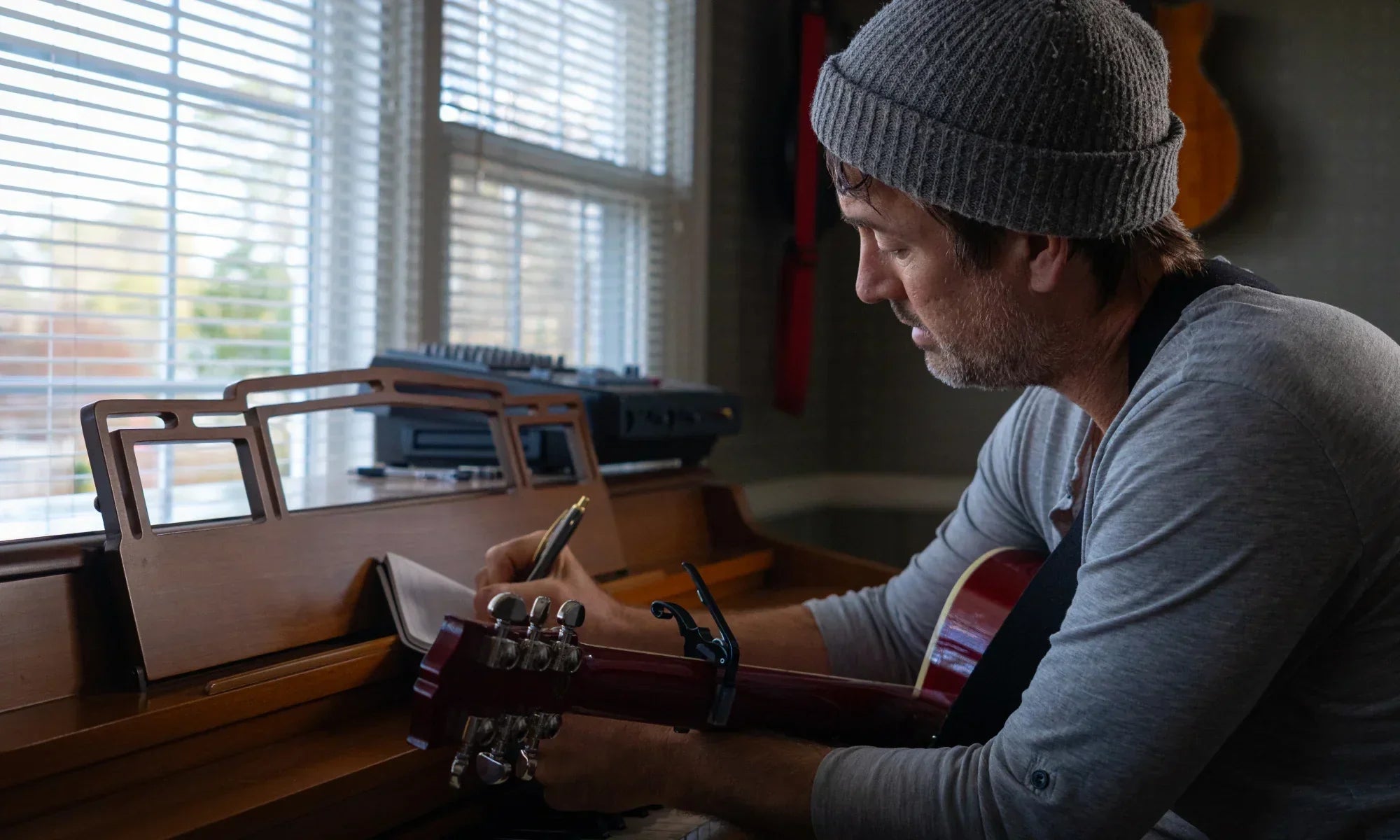Every songwriter has writer’s block at some point in their artistic journey. It might happen early on as you try to find your creative voice or maybe, as a seasoned songwriter, after writing songs that you’re proud of, you struggle to write something that you’re equally as proud of. We understand the frustrations of writer’s block and how it can affect your creativity. We’ll talk about some simple methods we’ve used to unlock our creativity to get new ideas flowing.
The first method we’ll discuss involves changing your overall approach to writing in a very simple way. After that, we’ll share some quick tips you can use for any creative project to keep things fresh and interesting as you create!
What To Do When You Get Writer's Block
Change Up How You Approach Writing Songs
Most songwriters approach writing the same way every time. Some artists are melody-driven, meaning they think of a melody for a song first. They work on this melody and, once they have something they like, they start adding chords and words around that initial idea.
Other songwriters may approach their songs with lyrics first, almost like writing poetry. Then, once they have something they like, they try to put it to a melody or chords. Some are inspired by a chord progression, a particular instrumentation arrangement, or even just a thematic idea like, “I want to write a song about being in love with someone who doesn’t love me back.”
What do you write with in mind first?
Melody – Lyrics – Chord Progression – Thematic Idea – Storytelling – Instrumentation
The challenge here is to consider whatever way you normally write and try something completely different. If you’re the songwriter who always starts with a melody, you might be surprised at what happens when you begin with lyrics first. Perhaps you’ll write about something you’ve never explored, or you’ll put more emphasis on a part of your songwriting that usually takes a backseat.
Maybe you build around a thematic idea and end up writing with more detail than you thought possible. Or, if you start with a compelling story and haven’t committed to a chord progression first, you might let the chords move to new places to support the story you’re telling. This is just one example of how switching up your process can lead to different results. Of course, you can always return to your usual approach for the next song, but if you try a completely different angle, at the very least you’ll practice a part of your songwriting that you haven’t focused on before.
Changing the order or priority in which you compose is easy to try, with no real cost. You just give it a go and see how you like it! One of the beautiful things about songwriting is that not every song has to be shared with the world; some songs are simply practice or just for you. Part of being a songwriter is exploring what that means in its entirety and trying new things so you experience different aspects of the art firsthand.
Quick Ideas to Spark New Creative Thoughts and Overcome Writer’s Block
Below are some quick ideas you can try to keep things fresh and interesting in your creative process:
-
Write in a Different Genre
If you always write pop songs, why not try a rock song? Even if you don’t commit to it fully, the act of writing in a different style might reveal new elements you want to incorporate into your usual writing. -
Use a Different Instrument
If you’re a guitar player who always writes with a guitar, what would it look like to write with a piano? Maybe you don’t play more than one instrument—now could be the time to learn something new! You don’t have to be a world-class pianist to write a song starting with piano. Perhaps you end up recording the final version on guitar, but using piano first might spark a fresh perspective. -
Co-Write with Someone Who Thinks Differently
Collaboration can open your eyes to new ways of thinking and writing. It also helps you practice communication and compromise in the songwriting process. -
Change Your Physical Environment
Sometimes a new setting can inspire new ideas. Try writing in a park, a café, or even just a different room in your home. -
Write About a Subject You’ve Never Touched Before
Exploring a new topic can challenge you to think differently about word choice, structure, and emotion. -
Listen to Different Music Than You Normally Would
This broadens your musical perspective and might introduce you to chord progressions, rhythms, or instrumentation that you haven’t considered before. -
Look for Inspiration in Other Arts
Film, books, theater, and paintings can all spark unique ideas that you can adapt for your music.
Being a songwriter is more than just sitting down and saying, “I’m going to write a song,” and then boom, it’s a hit and you’re done. Songwriting is an art meant to be explored, practiced, and sometimes even “failed at” over and over again—until you find something you’re proud of that resonates with other people. Don’t be afraid to try something new and enjoy the process.
In the end, when you have something you love, feel free to reach out to us here. We’d love to help you bring your song to life!
Remember, every experiment adds to your growth as a songwriter. Happy writing!

